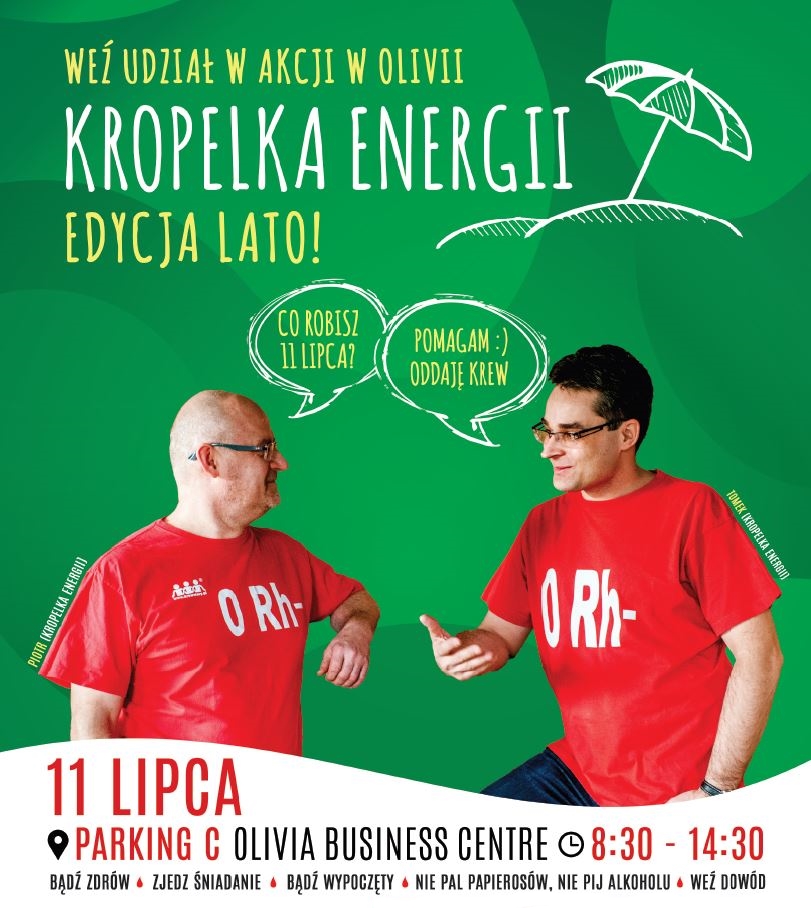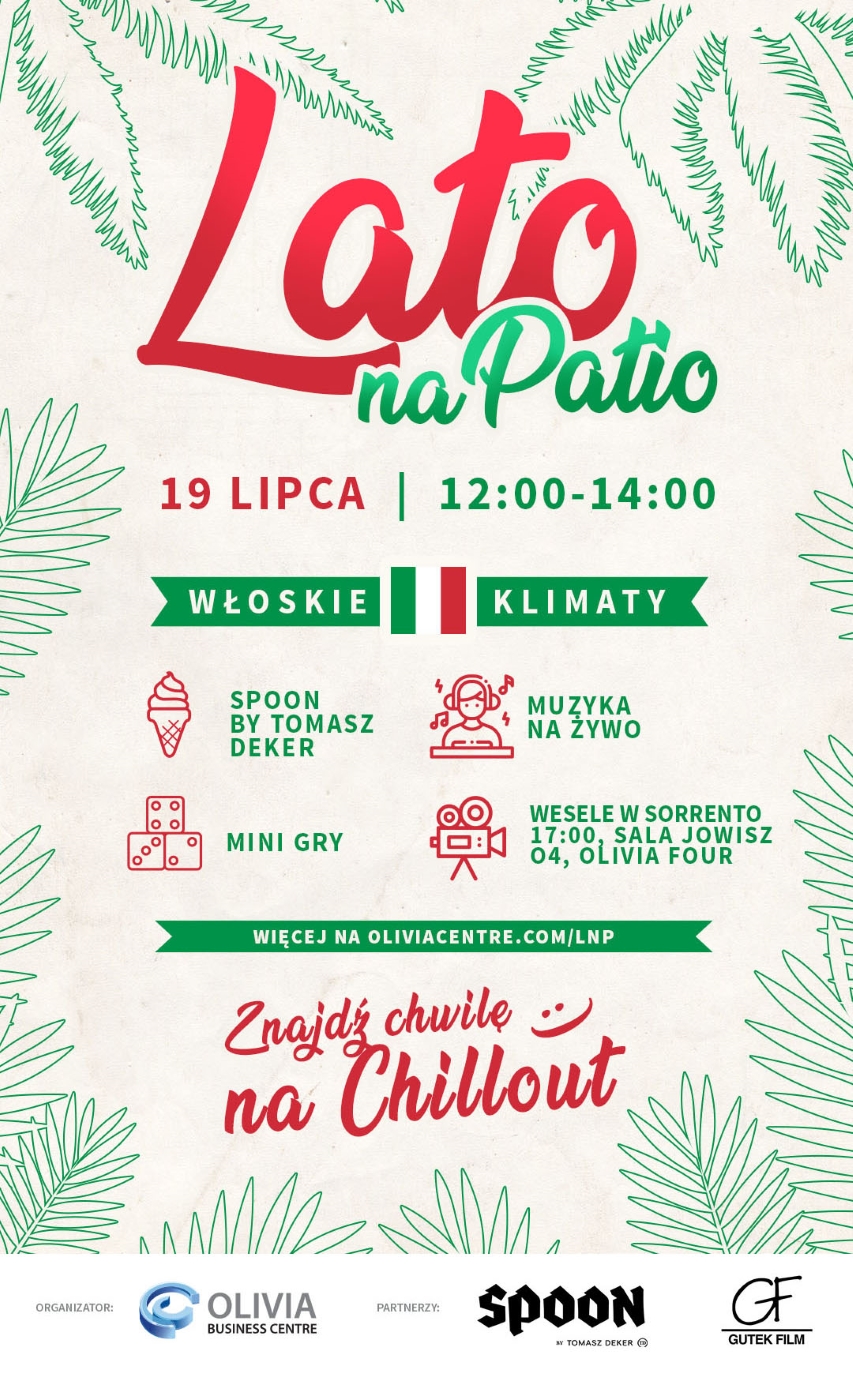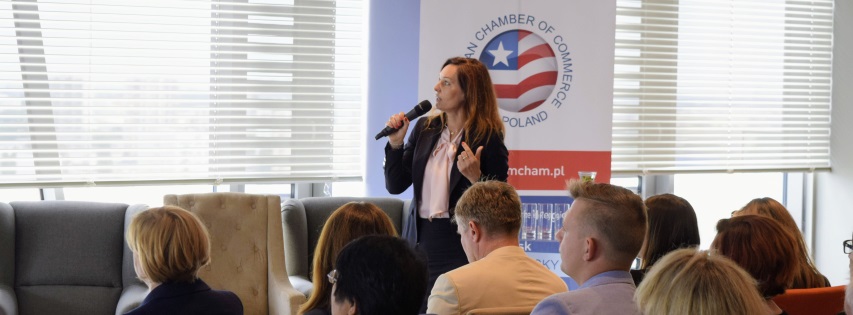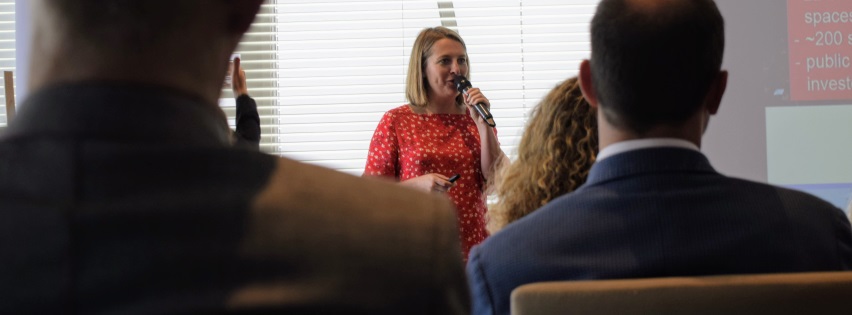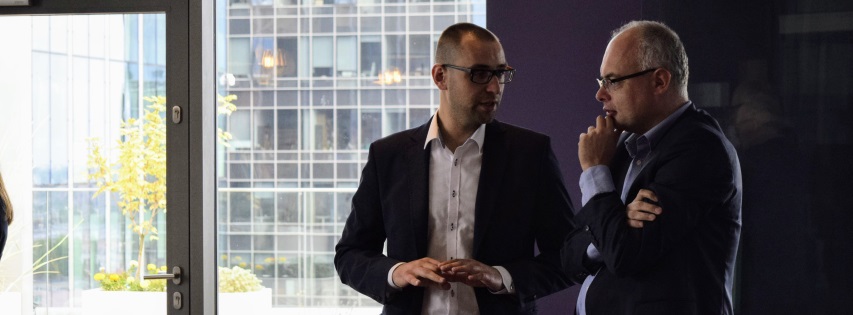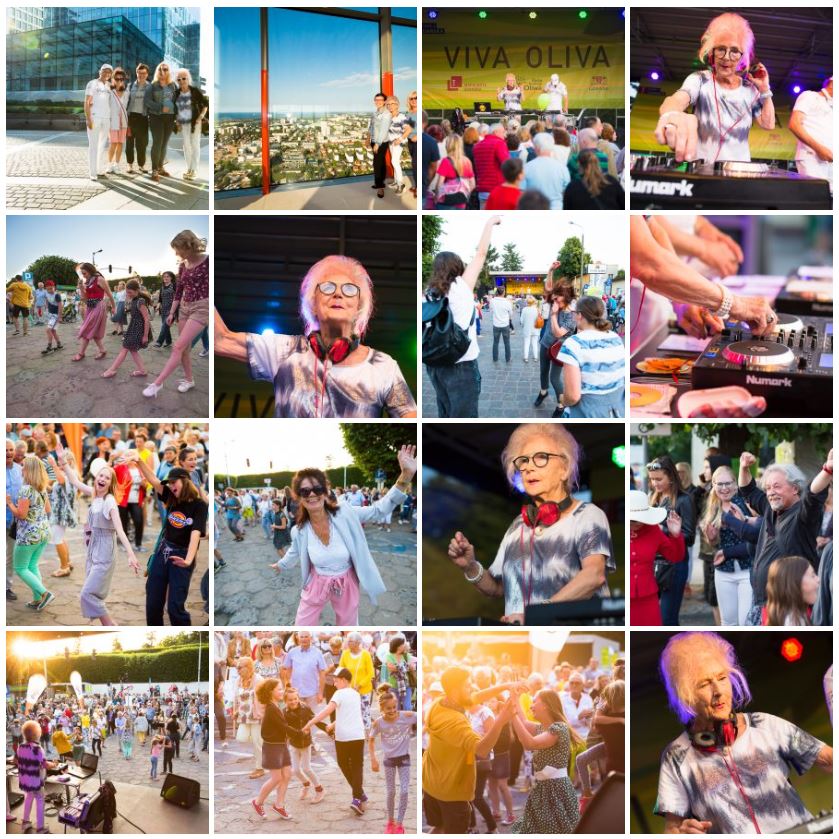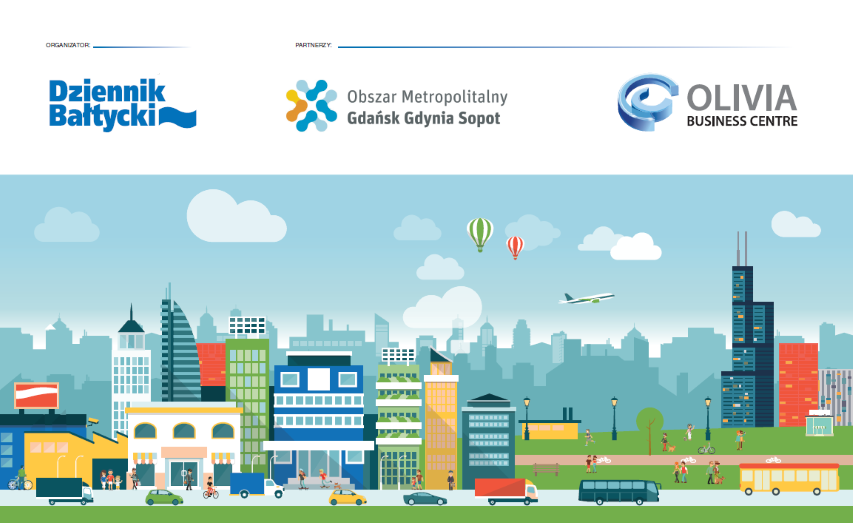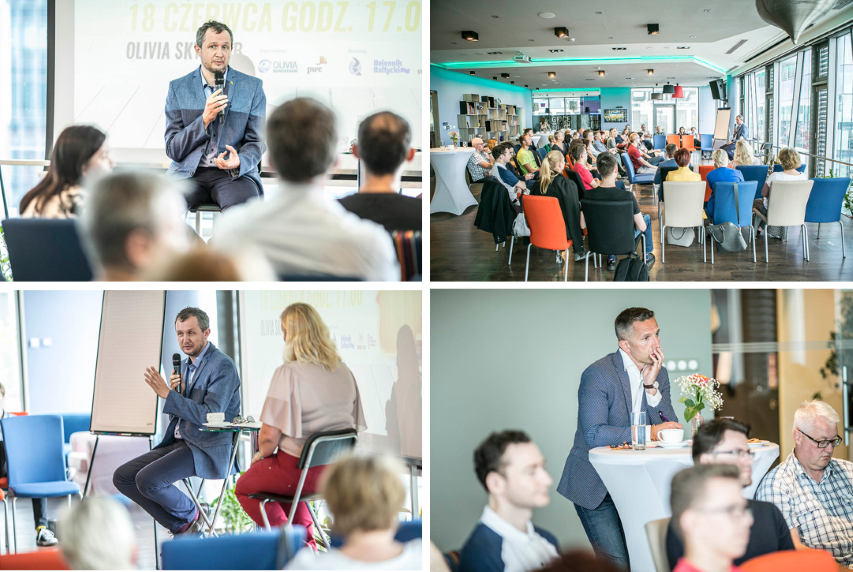Kropelka Energii Foundation and Olivia Business Centre invite
youall those working at OBC and their Friends
as well as the residents of the Tri-City to participate
in the blood donation campaign, which will take place on July 11, 2018 at the C Olivia car park!
In one place and at one time, blood buses will be available to donors from the Regional Blood Donation and Haemotherapy Centre.
- Donor registration will take place from 8:30 a.m. to 2:30 p.m.
- Tomasz Rubanowicz (tel. 785 873 326) and Piotr Krysiński (tel. 601 529 929) are responsible for the smooth running of the campaign and providing organizational information.
- The action will be coordinated by the Organizers directly at the ambulances.
People who live outside the Tri-City or will be on holiday at that time can donate blood at the nearest blood points throughout the country (here are the addresses: http://www.nck.gov.pl/sluzba-krwi/rckik/ and local branches: http://www.nck.gov.pl/oddzialy-terenowe/). After donating blood, please send information about the donation (confirmation) for statistical purposes to the following address: ekropelka@energa.pl
What are the conditions to become an Honorary Blood Donor?
Before donating blood, we encourage you to familiarize yourself with the guidelines that must be met to become an Honorary Blood Donor. Detailed information can be obtained in the “For Donors” tab on the website: http://www.krew.gda.pl/ or consult a doctor directly in the ambulance.
REMARK! People who plan to donate blood must remember to:
- be healthy, i.e. you cannot have symptoms m.in. colds (e.g. runny nose, cough, cold sores);
- did not take medications such as: aspirin, paracetamol, anti-allergic;
- do not donate blood on an empty stomach, that is, it is necessary to eat a light meal and drink a large coffee, tea;
- be well-rested and well-rested;
- two hours before donating blood, do not smoke cigarettes;
- do not drink alcohol, including on the day before donating blood;
- Be sure to bring your ID card or driver’s license.
Bone marrow donor database
If you are interested in registering in the bone marrow donor database, you should report it to the ambulance. For more information on how to become a bone marrow donor, please visit: http://przeszczepy.wordpress.com/pytania-i-odpowiedzi/ or https://www.dawca.pl/jak-zostac-dawca/dawstwo-szpiku
Bonuses
For donors who donated blood on that day in an ambulance or at a blood donation station in the Tri-City and report their donation to the Organizers in the tent next to the blood buses – we provide:
- Voucher for free coffee or tea at Starbucks Poland;
- Voucher for a meal at Lobster Restaurant or for lovers of Japanese cuisine KOKU Sushi Gdańsk Oliwa;
- and other additions that we will tell you about during the campaign.
In accordance with the provisions of Article 9 of the Act on Public Blood Service of 22 August 1997, persons who donate blood are entitled to a fully paid leave from work on the day on which they donate blood. We suggest that you agree to participate in the action with your supervisor in advance. In our everyday surroundings (family, friends) there are situations that require blood transfusions. The need is obvious… There remains the question of courage and willingness.
WELCOME!
